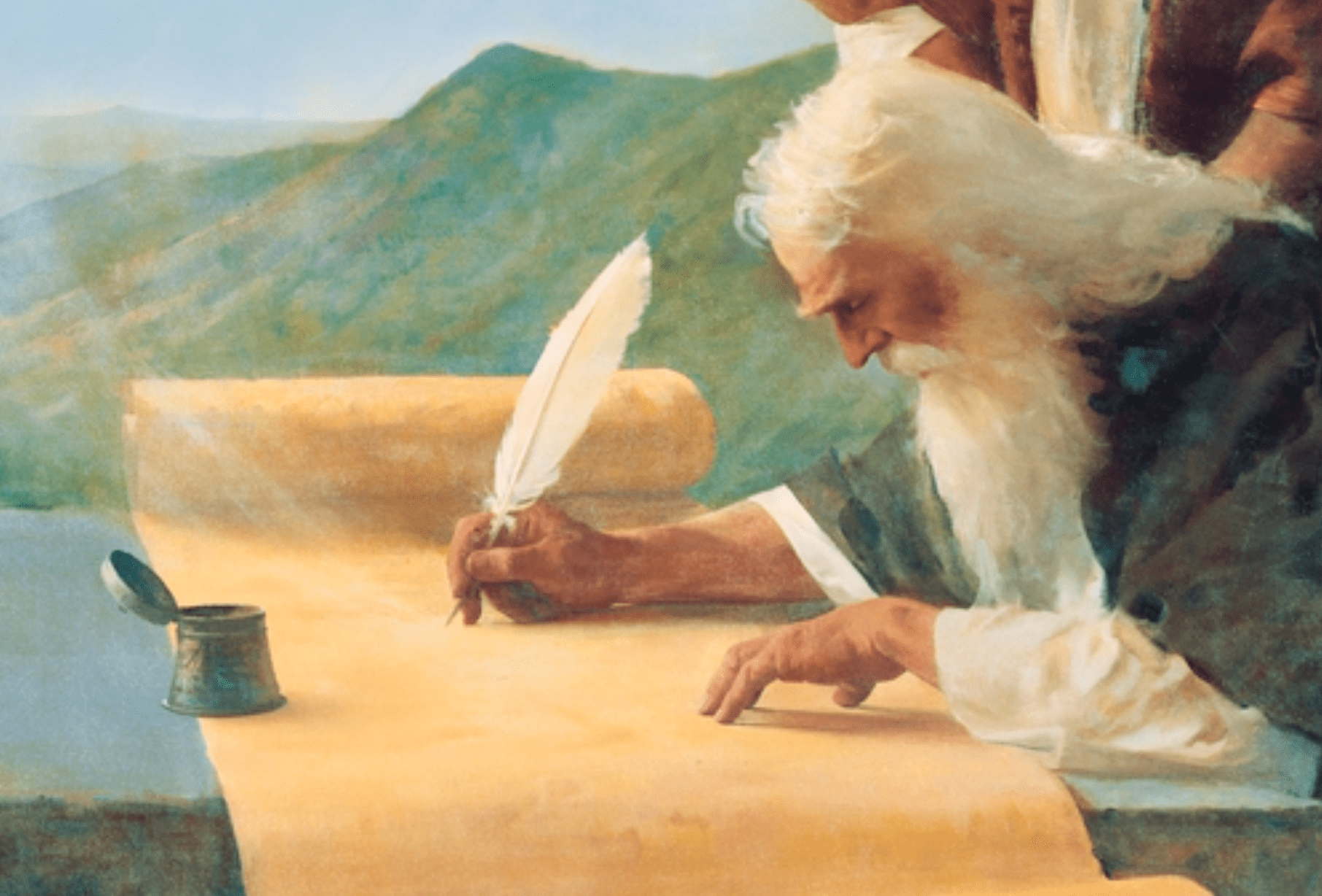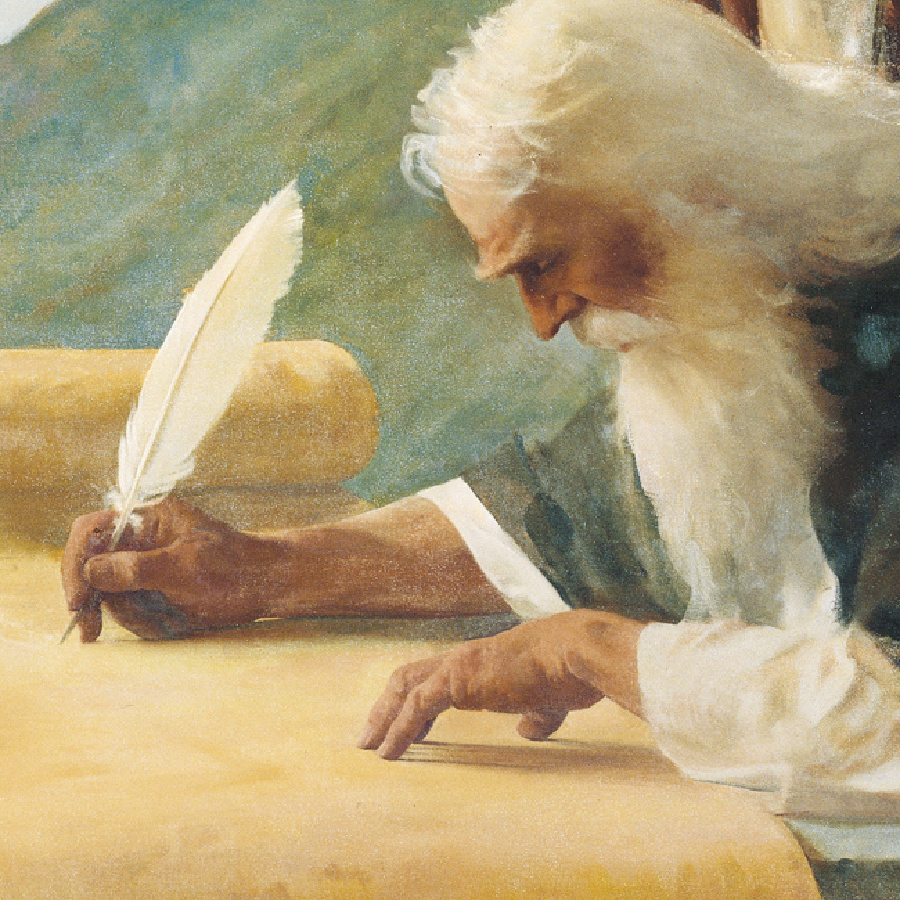Isaiah Justus Farrow: Exploring The Enduring Legacy Of A Powerful Name
When we hear a name like Isaiah Justus Farrow, it very often makes us pause, doesn't it? There's a certain weight to it, a sense of history and perhaps even a touch of intrigue. Names, you see, are more than just labels; they carry stories, traditions, and sometimes, too it's almost, connections to powerful figures from the past. This particular name, "Isaiah," holds a remarkably deep and rich heritage, one that stretches back thousands of years and touches upon some of the most profound writings known to humanity.
So, what exactly is that enduring legacy? Well, it's a bit like tracing a very long thread through time, back to ancient civilizations and the foundational texts that shaped beliefs for generations. The name "Isaiah" itself, in its original form, actually means "The Lord is salvation," which is, you know, a pretty significant meaning right there. It points to a figure of immense importance in religious history, someone whose words and visions have resonated through centuries.
This article will, in a way, take a closer look at the historical and spiritual significance tied to the name "Isaiah," drawing directly from ancient texts that speak of a truly influential prophet. We'll explore who this biblical figure was, what his writings contain, and why his message continues to be studied and cherished by many people around the globe even today. It's an exploration of how a name can, quite literally, echo with meaning across time.
Table of Contents
- The Roots of a Resonant Name: What Does "Isaiah" Mean?
- The Prophet Isaiah: A Glimpse into Ancient Times
- Who Was This Biblical Figure?
- The Book of Isaiah: A Profound Collection of Writings
- Prophecies and Challenges: Isaiah's Enduring Message
- Exploring the Impact of Isaiah's Teachings
- Frequently Asked Questions About the Prophet Isaiah
The Roots of a Resonant Name: What Does "Isaiah" Mean?
The name "Isaiah," as we mentioned, carries a profound meaning, suggesting "salvation of the Lord" or "the Lord is salvation." This meaning is deeply connected to the biblical prophet who bore this name, a figure whose life and words are chronicled in one of the most important books of the Old Testament. When we hear "Isaiah Justus Farrow," the "Isaiah" part of the name, in some respects, immediately brings to mind this ancient, powerful heritage. It's a name that has been chosen for its significance, often reflecting hopes or connections to spiritual traditions.
It's fascinating, actually, how names can carry such weight, can't they? The choice of "Isaiah" for a person in modern times, you know, might simply be because someone likes the sound of it, or it could be a very deliberate nod to its historical and religious importance. As a matter of fact, the prevalence of this name through centuries speaks volumes about the lasting impact of the prophet himself. It’s a name that, quite literally, resonates with history and spiritual depth, making it a truly special choice for anyone.
The Prophet Isaiah: A Glimpse into Ancient Times
To truly grasp the weight of the name "Isaiah," we must, in a way, look back to the ancient world, to the biblical prophet who gave the name its lasting fame. This figure, Isaiah son of Amoz, was a truly central voice in the ancient kingdom of Judah. His life and prophetic ministry unfolded during a particularly turbulent period, a time of significant political and spiritual shifts for his people. He was, basically, a guide and a challenger for his society, speaking words that still hold meaning today.
Who Was This Biblical Figure?
So, who was this biblical prophet Isaiah, the one whose very name has such a powerful echo? He was, you know, a man of Jerusalem, living and working in the 8th century BCE. His prophetic visions and messages were delivered during the reigns of several kings of Judah: Uzziah, Jotham, Ahaz, and Hezekiah. This span of time, roughly between 740 BC and around 686 BC, suggests a very long and active period of ministry, possibly, in a way, even separated by about 15 years into two distinct phases of his work. He was, apparently, a truly steadfast voice through changing times.
Isaiah, the prophet, is the namesake for a whole book in the Bible, which is, quite simply, a huge honor. While the entire Book of Isaiah bears his name, it's generally understood that only some of the first 39 chapters are directly attributed to him. He was, nevertheless, a significant contributor to these foundational scriptures. His insights and warnings, his hopes and visions, were, in fact, recorded for generations to come, giving us a unique window into the spiritual landscape of his era. He was, truly, a foundational figure.
He lived in a time when Judah faced many challenges, both from outside forces and from within its own society. His role, as a prophet, was to speak God's messages to the people, often calling them back to faithfulness and justice. This was, you know, not always an easy task, as people sometimes resisted his words. Yet, his influence was so profound that his teachings were carefully preserved, ensuring that his voice would continue to resonate through the ages, providing, in a way, guidance and comfort for those who sought it.
The Book of Isaiah: A Profound Collection of Writings
The Book of Isaiah is, without a doubt, one of the most important and comprehensive prophetic works in the entire Old Testament. It's a rather substantial collection, containing a full 66 chapters, which is, as a point of comparison, quite extensive for a single biblical book. The traditional view holds that all these chapters were indeed written by one man, the prophet Isaiah himself, though, as we noted, some scholars attribute only the initial part of the book directly to him. It’s a work that, more or less, covers a vast range of topics, from warnings of judgment to promises of hope.
This book is not just a historical record; it's a deeply spiritual text, full of profound insights and powerful imagery. You can, for example, read the Book of Isaiah online today, and you'll find it accompanied by full summaries, detailed commentary, and concordances for serious Bible study. This accessibility means that anyone, from a seasoned theologian to someone just beginning their spiritual exploration, can, in a way, engage with its rich content. It's a truly remarkable resource for understanding ancient thought and prophecy.
Many of the most famous and widely quoted verses in the Bible actually come from the Book of Isaiah. Its poetic language and powerful declarations have, you know, inspired countless individuals throughout history. It's a book that challenges, comforts, and, in a way, paints a vivid picture of God's character and plans. The breadth of its topics, from detailed visions concerning Judah and Jerusalem to sweeping prophecies about the future, makes it a truly captivating read for anyone interested in ancient wisdom and spiritual guidance.
Prophecies and Challenges: Isaiah's Enduring Message
The prophet Isaiah’s message was, in fact, incredibly multifaceted, encompassing both stern warnings and glorious promises. He truly challenged Israel to obey God with all of their heart, not just by outward appearances or rituals. His desire was that those who heard and read his words would, you know, genuinely turn towards a deeper, more sincere relationship with their creator. This focus on internal transformation, rather than just external compliance, was, in a way, a very radical idea for his time.
Perhaps one of the most striking aspects of the Book of Isaiah is its extensive prophetic picture of Jesus Christ. An Old Testament prophet named Isaiah foretold many things about Jesus’ life, his suffering, his purpose, and even his second coming. It includes, in fact, the full scope of his life, from the announcement of his coming to details about his eventual reign. No other Old Testament book, arguably, provides such a comprehensive and detailed preview of the Messiah. This makes it, you know, a truly vital text for Christian theology.
Isaiah’s visions were often dramatic and sweeping. He famously called upon creation itself to listen to his words: "Hear, O heavens, and give ear, O earth." This kind of language highlights the sheer importance he placed on his message, emphasizing its universal relevance. His prophecies concerning Judah and Jerusalem were, basically, not just for his immediate audience but carried warnings and hopes that, in a way, transcended his own time. He was, truly, a prophet for the ages, whose insights continue to resonate with people today.
Exploring the Impact of Isaiah's Teachings
The impact of the prophet Isaiah's teachings extends far beyond the ancient world. His book remains, in fact, a cornerstone of biblical study and spiritual reflection for countless individuals and communities. For anyone looking to deepen their understanding of ancient prophecy, or to explore the roots of significant religious concepts, the Book of Isaiah provides, you know, an unparalleled resource. It’s a text that, quite literally, invites careful consideration and thoughtful engagement.
His emphasis on justice, righteousness, and the importance of a sincere heart continues to inspire and challenge readers. The way he painted pictures with words, describing future events and spiritual truths, has, you know, influenced literature, art, and music throughout history. It's a text that, in a way, transcends its original context, speaking to universal human experiences and aspirations. The depth of its wisdom makes it, truly, a timeless work.
For those interested in exploring these ancient writings further, there are many resources available. You can, for instance, find various translations of the Book of Isaiah, along with scholarly commentaries and devotional guides. Learning more about the historical context and the literary style can, in a way, greatly enrich your understanding. It's a journey into a truly significant piece of human and spiritual heritage. You can, for example, learn more about biblical prophets on our site, and you might also like to explore this page understanding ancient scriptures for further insights.
As of April 29, 2024, interest in biblical studies and ancient texts remains strong, with many people seeking to understand the foundations of their faith or simply to explore historical narratives. The Book of Isaiah, with its powerful messages and profound prophecies, continues to be a central focus for this exploration. Its enduring relevance is, in a way, a testament to the timeless nature of its content and the powerful voice of the prophet himself. It’s a text that, quite simply, keeps on giving.
Frequently Asked Questions About the Prophet Isaiah
Many people, you know, often have questions about the biblical prophet Isaiah and his famous book. Here are some common inquiries that might help clarify things a bit:
What is the main message of the Book of Isaiah?
Basically, the Book of Isaiah carries a dual message: one of judgment for Israel's unfaithfulness and, in a way, a very strong message of hope and restoration. It truly calls the people to repent and obey God with their whole heart, while also foretelling a future of peace and the coming of a Messiah who would bring salvation. It's, in fact, a story of both consequences and incredible promise, offering a vision of a better future for those who listen.
Why is the Book of Isaiah so important in the Old Testament?
The Book of Isaiah is considered one of the most important books in the Old Testament primarily because of its extensive and detailed prophecies concerning Jesus Christ. It provides, you know, the most comprehensive prophetic picture of the Messiah, covering his birth, life, suffering, and future reign. Its theological depth and poetic beauty also make it a truly significant work for understanding God's character and his relationship with humanity. It’s, in a way, a foundational text for many beliefs.
Who was Isaiah's father, and during which kings' reigns did he prophesy?
The prophet Isaiah was, in fact, the son of Amoz. He delivered his prophetic messages during the reigns of four kings of Judah: Uzziah, Jotham, Ahaz, and Hezekiah. This span of time, as we noted, indicates a long and influential ministry, covering a period of significant historical events for the ancient kingdom of Judah. He was, in a way, a steady voice through many changes, providing guidance and warnings to the leaders and people of his time.
The enduring presence of the name "Isaiah," whether it's in a historical context or as part of a modern name like Isaiah Justus Farrow, really does highlight the profound and lasting impact of the biblical prophet. His words, recorded in the Book of Isaiah, continue to offer guidance, challenge, and hope to people all around the world. It’s a testament to the timeless power of ancient wisdom, and the way, you know, certain figures truly shape our understanding of faith and history. For further study, you might consider consulting a reputable biblical resource for deeper insights into the Book of Isaiah.
- Tiffany Henyard Previous Offices
- Sasha Prasad Biography
- Bryce James Height
- Snowshoe Cat
- Many Summer Later Gravity Falls

Study Resources for the Book of Isaiah | Book of Mormon Central

Isaiah

Isaiah The Prophet Had A Vision Of